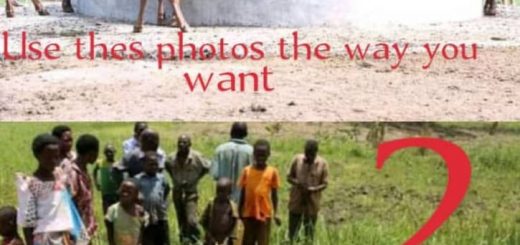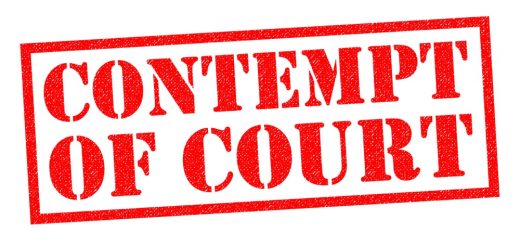Defending the right to bail in Uganda from the recent attack by President Museveni and Parliament

In Uganda Magistrates Courts do not have the power to grant bail to suspects accused of offenses triable by the High Court. These offenses include murder, terrorism, cattle rustling, abuse of office, rape, embezzlement, causing financial loss, defilement, offences under the fire arms act punishable by ten years imprisonment or more, offences triable only by the High Court corruption, bribery and any other offences for which the Magistrate Courts have no jurisdiction to grant bail. On the other hand, the High Court has unlimited jurisdiction and can grant bail for any offense whether triable exclusively by it or by the Magistrates Courts.
The problem with the trial procedures in Uganda, is that a person is charged before the Magistrates Court before he or she is committed to the High Court for trial even in circumstances where the Magistrates Court has no power to try the case the suspect is accused of or has no power to grant bail. Therefore, a person accused of aggravated defilement is charged by the Magistrates Court before the case is transferred to the High Court yet the Magistrates Court has neither the jurisdiction to try the accused person nor to grant him bail. To the contrary, if the accused person wants to be released on bail he or she has to apply to the High Court for bail.
This process is unduly burdensome and therefore, violates the accused person’s right to a fair hearing and due process of the law. The right to a fair hearing is a fundermental right to which no derogation is allowed under Article 44 of the Constitution of Uganda. The effect of denying the Magistrates Court in which the accused person is initially charged the power to grant bail is that an accused person is denied the opportunity to apply for bail and thus an opportunity to be released from custody pending his trial. The process of applying for bail in the High Court after being charged in the Magistrates Court can take more than thirty days. For example recently, Mr. Ssewanyana Allan was rearrested on September 23, 2021 after he was granted bail on charges of murder, attempted murder and aiding and abetting terrorism. He was charged in the Magistrates Court of Masaka on 26 September 2021 and remanded to Kigo Prison till October 13 2021 when he will return to the same court for mention of his case. Mr. Mohammed Ssegirinya was also rearrested in the same manner on September 27 2021. In the ideal world, Mr. Ssewanyana Allan and Mr. Mohammed Ssegirinya should have applied for bail in the Magistrates Court and so that they can be released on bail if they qualified for it. However, the current trial process forces the accused person to apply for bail in a different court. If an accused person is poor and unrepresented, he or she will not be able to apply for bail until he or she is committed to the High Court for trial. The process of committing the accused person to the High Court for trial can take more than five years in certain circumstances in Uganda.
If the accused person was given an opportunity to apply for bail in the Magistrates Court where he is arraigned, the accused person would have the opportunity to convince the court to release him or her on bail instantaneously or a short time after being arraigned. What legitimate purpose does it serve to force an accused person to apply for bail in another court seperate from the one he or she was arraigned. How would the state be harmed if an accused person was allowed to apply for bail on arraignment in the Magistrates Court or if the arraignment took place in the Court with jurisdiction to hear and determine a bail application in respect of the offense for which the accused person is charged.
A different approach and least restrictive option is one where as soon as practicable after arrest, the alleged offender is arraigned before a Magistrate. The Magistrate Judge advises the accused of his or her rights and determines if he or she has the financial ability to hire an attorney or if a public defender must be appointed. The Magistrate also sets release conditions, including any bail. Where bail is denied then the accused can be detained. If the alleged offender is detained, a detention hearing should be held within three working days from date of detention. At that hearing, the Magistrate should listen to evidence about the accused’s risk of flight or danger to the community. The Magistrate then should decide if the accused should be detained or released pending trial. Within 10 days of detention the accused person should be granted a Preliminary Hearing to determine whether the state has sufficient evidence to put the accused to trial.
So if the accused person is innocent until proven guilty and it is the duty of the state to prove the guilt of the accused person, why should the state make it unduly burdensome for an innocent person to be released on bail. Why should we allow an accused person suffer in jail yet he or she might as well be innocent because it is inconvenient for the state with all its resources to charge him or her in the right court. In Uganda given the politicisation of law enforcement agencies and the prevalence of shoddy investigations, innocent people are arrested, arraigned and remanded to prison for up to seven years without being granted an opportunity to apply for bail or given the opportunity of an preliminary hearing.
The trial process imposes an undue on the accused person in form of inability to get a preliminary evidenciary hearing to determine whether the state has credible evidence against the accused person. It also denies the accused person an opportunity to apply for bail so as to be released from detention. Furthermore, this process causes inordinate delays that violate the right to a fair hearing. In the circumstances, the trial process unduly burdens the right to a fair hearing.
Read More
- Ideal Amendments that should be included in the Magistrates Courts Amendment Bill 2026 of Uganda
- President Yoweri Kaguta Tibihaburwa Museveni is a minority President voted by only 7,946,772 (36.7%) out of 21,649,608 eligible Ugandan voters in the 2026 Presidential Elections
- Four years of IGG Beti Kamya drowned the Inspectorate of Government (IG) deeper into oblivion and irrelevancy but it Can be redeemed
- The Proposal to Make Magistrates Grade Ones Chief Magistrates is an efficient use of resources that will improve service delivery in Uganda
- If Magistrates Courts in Uganda are less competent and more prone to corruption does it mean that the poor deserve inferior justice to the rich.


